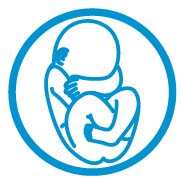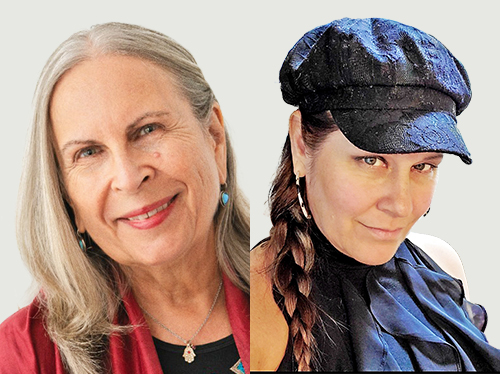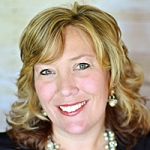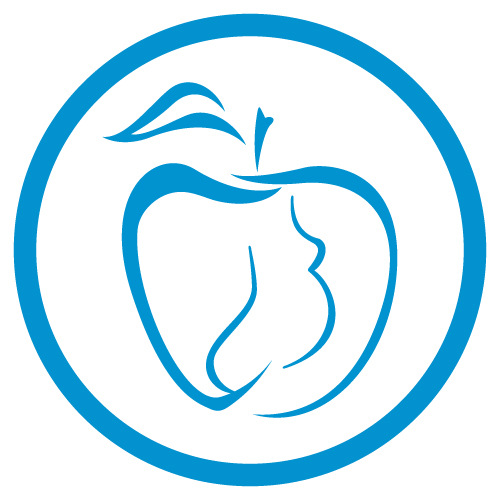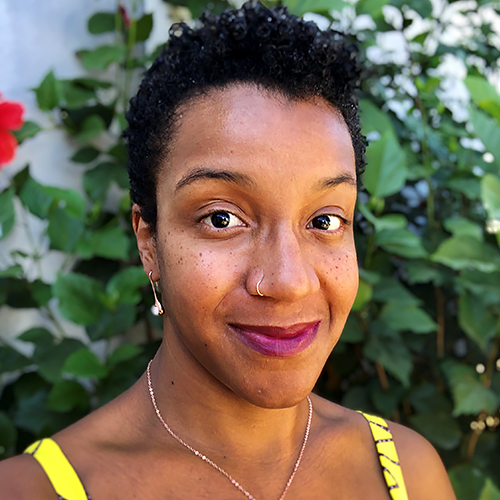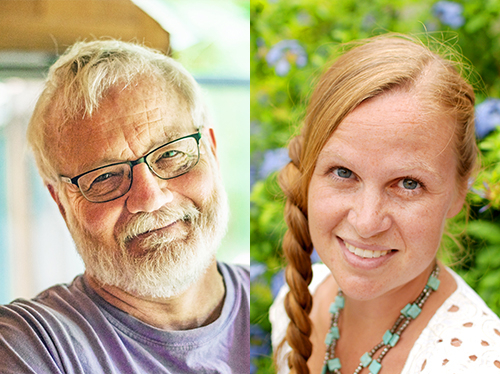

David Hayes is an OBGYN with an academic background and a passion for science and its proper application to clinical medicine. He has worked for Médecins Sans Frontières and trained in critical care obstetrics.
Dr. Hayes pursued training in vaginal breech birth during both medical school and his residency in Obstetrics and Gynecology, at a time when instruction in vaginal breech birth was no longer routinely included in the training of obstetricians in the United States. He has performed an estimated 140 vaginal breech births using traditional obstetric maneuvers in dorsal lithotomy positions. In 2016 he hosted a training session on physiologic vaginal breech birth taught by Dr. Shawn Walker, PhD. Since that time he has been fortunate to many vaginal breech births, including breech-breech twins and primiparous mothers, with a 100% successful vaginal breech birth rate and no significant complications or instrument interventions.
In 2018, Dr. Hayes arranged to host a workshop presented by breech researcher Dr. Rixa Freeze, PhD and was asked to teach the “hands-on” portion of the workshop. As of August 2019 and in conjunction with Dr. Freeze and her organization Breech Without Borders, he has committed full time to training and reestablishment of physiologic vaginal breech birth.
Dr. Rixa Freeze has a PhD in American Studies from the University of Iowa. Her doctoral studies focused on the history of healthcare and medicine with specialization in pregnancy, childbirth, and maternity care. Her dissertation examined why women in North America choose unassisted home births. She worked as a visiting assistant professor for 9 years at Wabash college. Her current research interests include human rights in childbirth, autonomy and informed consent, and vaginal breech birth.
She has published two articles about home birth: “Staying Home to Give Birth: Why Women in the United States Choose Home Birth” (JMWH 2009) and “Attitudes Towards Home Birth in the USA” (Expert Review of Obstetrics & Gynecology 2010). She recently published the article “Breech birth at home: Outcomes of 60 breech and 109 cephalic planned home and birth center births” with BMC Pregnancy & Childbirth. In 2019 she published an article about outcomes of breech at home, birth centers, and hospitals (Midwifery Today) and a book chapter “Freebirth in the United States” in the 2020 book Birthing Outside the System: The Canary in the Coal Mine.
Dr. Freeze is the founder and president of Breech Without Borders, a 501(c)3 nonprofit dedicated to breech training, education, and advocacy. She also blogs at Stand and Deliver (rixarixab.blogspot.com).
This presentation shows breech birth videos submitted to Breech Without Borders for analysis & educational purposes. In this session, the instructors present videos that show some type of deviation from normal physiological birth. Some of the births resolve spontaneously, while others require assistance in the form of maneuvers. As the videos play, the instructors discuss what they are seeing, point out what was done correctly and what might have been done differently, and give clinical tips to the audience members for when they are attending vaginal breech birth.
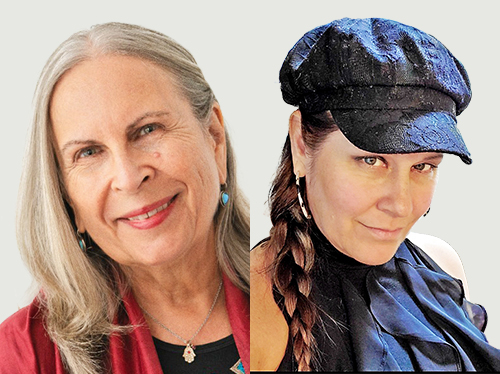

Barbara Harper is an internationally recognized expert on waterbirth and gentle birth, a published author of books and journal articles, who founded the non-profit organization, Waterbirth International, in 1988, with one goal in mind – to ensure that waterbirth is an “available option” for all women. During the past five decades Barbara has worked as an obstetric, pediatric, and critical care nurse, midwife, midwifery instructor, childbirth educator, and Blissborn Hypnosis teacher/trainer. She teaches unique seminars within hospitals, nursing schools, midwifery and medical schools and community groups worldwide. Her bestselling book, ‘Gentle Birth Choices,’ has been translated into 9 languages, including Chinese. Her latest collaborative book project was published in May 2021, called Bringing Birth Home. She is also working on a new book project called Gentle Birth Wisdom. She lives in Boca Raton, Florida teaching Blissborn Classes and attending occasional births.
Charlotte Sanchez is a childbirth educator and midwife. Supporting women and their families in the natural home birth process consecutively now for 30 years. As an Atlanta midwife, she believes in a woman’s right to determine her own choice of care during pregnancy and birth. Charlotte received her training through an extensive internship before becoming a Certified Professional Midwife (CPM), a program developed by the North American Registry of Midwives. She gained vast experience co-directed a free standing family birthing center in the state of Michigan. As well as founding Pregnancy Beat a national pregnancy website featuring expert articles, videos, birth stories and a community for mothers. It was after attending home births throughout the United States and Canada in places such as Windsor, Michigan, Ohio, Kentucky, California and Georgia that she now resides in Atlanta. Recently after completing 10 years serving as Vice President of the Georgia Midwife Association Charlotte decided to move forward to pursue her passion with teaching. She specializes in water birth, vbac, twins and breech birth. She has trained highly motivated students who have became practicing Midwives. Personally Charlotte is a mother of four children whom three were born gently into the hands of midwives, with the last a home water birth 25 years ago.
A steady decline in the rate of vaginal term breech birth over the past three decades has led to a resurgence of vaginal breech birth in many parts of the world. The dedication of researchers, teachers, providers, and non-profit organizations has fostered on- going studies, published research, and provided hands-on training. Within that dedicated group of professionals there is a controversy surrounding using water for second stage. There are strong opinions on either side. Dr. Herman Ponette, the head obstetrician at the H. Surreys Hospital in Ostend, Belgium, was the first obstetrician to detail his experience using water immersion for term breech vaginal birth in the early 1980s. Using water as a comfort measure for early labor is not currently in question. Most experienced breech providers have limited experience using water for the actual birth.
This session will examine the pros and cons of facilitating breech birth in water from a provider perspective. A brief discussion of fetal reflexes and newborn transitional physiology will be included as well as a summary of the current research. Using photos, video of breech waterbirths, and video demonstration on models of hand positions and techniques to assist with a breech birth will introduce the participant to this topic and create an interest for further research and investigation.

View Details / Enroll
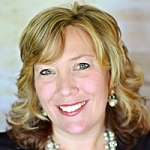
Bridging the Gaps to Provide a Continuum of Care

Christy Jo has over 25 years of teaching experience. She is passionate about teaching in ways that simplify learning. She has been awarded the United States Presidential Volunteer Award for her community service, the Phyllis Klaus Founder's Award for her contribution to the Mother/Baby bond and the Above and Beyond Award for innovative projects that exemplify the mission of Public Health. She has also been named Lactation Educator Faculty of the Year from Childbirth and Postpartum Professionals Association and earned their Visionary Award in 2015. Christy Jo is the author of Mommy Feeds Baby and co-author of Making Milk. She created the Grow Our Own Lactation Consultant/IBCLC Prep Course which has been used to train hundreds of students to become Lactation Consultants. She currently resides in California with her husband and three children. She continues to serve her community as a birth doula, Private Practice IBCLC, Health Educator for Public Health, and faculty for the CAPPA CLE© and Childbirth Educator Programs.
Topic: Enhanced Counseling Skills for the Lactation Educator - [View Abstract]
Topic: Expanding Our Audience to Gain Greater Appreciation and Acceptance of Breastfeeding - [View Abstract]
Topic: Sharing Your Wisdom: From Abstract Idea to Awesome Prenatal Breastfeeding Class - [View Abstract]
Topic: The Art of Communication: Simplifying Birth and Breastfeeding - [View Abstract]
Promoting collaborations among caregivers and healthcare providers to ensure consistent and continual breastfeeding support.
This talk uses humor and scenarios to point out the necessity that those entrusted with a family’s care be professional, inclusive and open in order to provide the best support possible.

View Details / Enroll
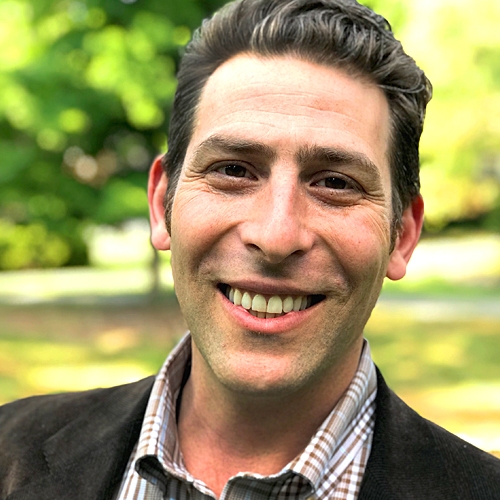

Dr. Yale Nogin is the creator of The Hero Dad™ Program taught at Piedmont and Kennestone Hospitals in Atlanta, GA and is the author of The Hero Dad’s Infant Manual. He has been teaching classes for expecting, new and adopting fathers over the last 15 years and counting.
His program focuses on empowering men with relevant principles, skills, systems and behaviors that earn respect from their partners which enable the couples to co-create a relaxed home environment. Being a new father with an Infant management system, post-partum support skills, and a system for “listening to understand” help new fathers feel confident and willing to participate early on which helps keep them invested in their family.
Dr. Nogin is passionate about preventing the fatherlessness epidemic from getting worse. The time surrounding birth is a crucial time to equip men with skills to help navigate the many changes and responsibilities that come with being a parent and partner so men want to come home at night.
The perinatal period is a pivotal point in lives of both expecting mother and father. This time period can prove to be a perfect opportunity for the birthing community to help men engage with their upcoming role and responsibilities of fatherhood and “husband-hood w/baby”. If we are able to positively influence men to be engaged with their new family from the beginning we can increase the odds of positive birth outcomes. Unfortunately, men report to feel “left out” and “marginalized” during the prenatal visits, education and delivery. To create a change and help create better family outcomes we must work together to bring men more into the fold during this time period. We will discuss ways in which the birth community can help men such as being more conscious of where men are emotionally during the perinatal visits and by using positive reinforcement of what new relevant fatherhood and masculine behavior looks like such as the ability to listen and understand our partners, self-awareness and self-control as well as our openness to grow and learn these modern behaviors and skills that most men today have not been exposed to in order to the respect they are seeking from their partners and children.

View Details / Enroll
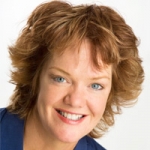

Theresa Nesbitt, RN MD ("Dr. Theresa") is an Obstetrician-Gynecologist with special training in Maternal Fetal Medicine. Her interests these days lie in promoting lifelong wellness for women with a focus on nutrition, reproductive health and breastfeeding. She is the Director of Family Health Coaching, editor of Babies and Breastfeeding Magazine and author of Evolutionary Eating: How We Got Fat and 7 Simple Fixes. She anticipates publication of her newest book Building a Baby Brain Bite by Bite - How to Eat Before, During and After Pregnancy next year. Her interest in brain growth and development, nutrition and developmental kinesiology have helped her to look at placentation, lactation and nutrition for reproductive fitness through a new lens.
Topic: Building a Baby Bite by Bite - [View Abstract]
What does it take to build a baby brain from scratch? This presentation focuses on fertility, pregnancy, placentation and lactation - and the role nutrients and toxins play in optimizing fetal brain growth and development. Facts and Fictions including prenatal vitamins, omega 3 fatty acids and "avoidance foods" will be discussed.
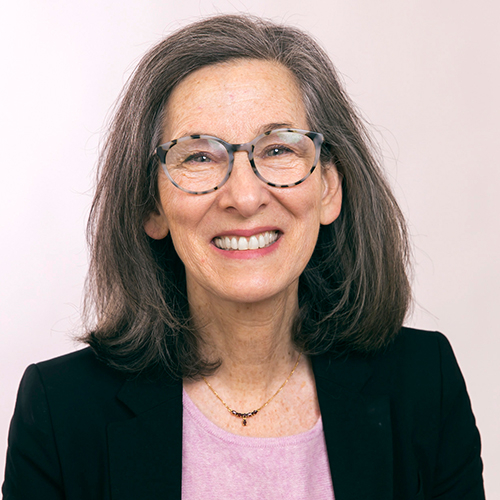
Building a Clinical Tongue-Tie Care Plan Families Can Work With

Gina has been assisting breastfeeding mothers for over 20 years, and now through telehealth all over the world. She knows that while most pregnant mothers expect to breastfeed, very few receive proper preparation for the difficulties and the rollercoaster of emotions when there are problems.
When Gina had her first baby, like many new mothers she was overwhelmed by conflicting information: at the hospital, the pediatrician’s, and from well-meaning friends and family.
Her appreciation of the volunteer support she received led her to want to “pay it forward” and help others. She first trained as a volunteer LLL Leader in Houston, Texas, then as a birth doula in Amsterdam, The Netherlands, and finally sat for the exam to become an IBCLC in Seville, Spain. She continues to lead monthly breastfeeding support meetings online and in-person.
Gina believes that all mothers deserve quality emotional and educational support. It should not be just a matter of good luck. She's dedicated to giving effective guidance and caring support with real results. Her greatest satisfaction is the joy of seeing that look on both mothers’ and babies’ faces that says: Just what I always wanted!
When tethered oral tissues (TOTS) are impacting feeding, a care plan must be tailored to the unique circumstances of the parent(s), the baby and the reality of their environment. Parents are often feeling overwhelmed and desperate and from the moment of our initial consult, our nurturing care and guidance provide safety and relaxation. When parents feel understood, they often cry and release a massive amount of stress. The flow of oxytocin and endorphins can soothe their emotional pain as they begin to trust that help is possible. We calmly identify areas needing attention, we prioritise them, and we find out what is most easily doable for the parent(s) among the top priorities. Each step of the care plan offers choices (in regards to feeding, positioning, milk supply, exercises, etc) that will positively impact both the wellbeing and the feeding experience. We help parents to understand that feeding is a whole body activity and that an improvement in any area gives ripples of improvement in the others. We make adjustments as needed, and the changes begin to flourish. We replace fear and confusion with confidence and flexibility. Parents understand “the why” of each step and begin to enjoy that they themselves are driving the positive change!
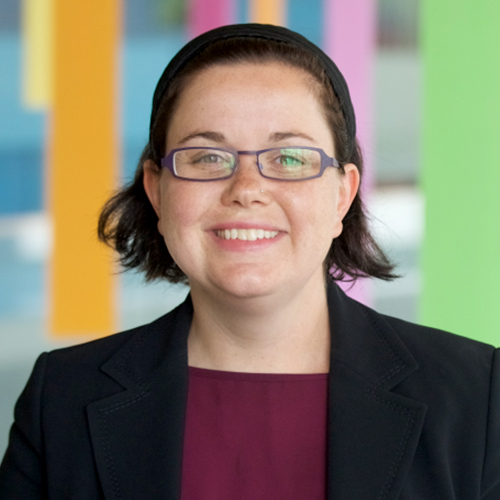
Building Bridges: Early IBCLC Recognition and Triage of Common and Life-Threatening Newborn and Maternal Pathology

Topic: How Low Is Too Low? Managing Newborn Hypoglycemia - [View Abstract]
IBCLCs, often with limited education in newborn medicine and obstetrics, care for the infant-parent dyad within the context of a complex healthcare system staffed by providers with variant training in breastfeeding medicine. This is an interaction filled with knowledge gaps and fraught with the possibility for misunderstanding and dangerously missed diagnoses. I plan to combine my training in general pediatrics and my clinical experience as a pediatric ER physician with my IBCLC training. I will teach conference participants about medical emergencies when caring for the breastfeeding newborn and the post-partum parent so that they can recognize clinical scenarios presenting to their care that require immediate medical assessment. The presentation will focus on high-yield topics in newborn medicine and postpartum obstetrics to deepen the IBCLCs recognition and ensure appropriate ongoing care for common and life-threatening complaints. It will include a discussion of neonatal jaundice, neonatal fever, severe weight loss, pyloric stenosis, congenital birth defects and genetic disorders; the lecture will also address postpartum depression, post-operative infections, and postpartum preeclampsia. Armed with this understanding of clinical red flags, IBCLCs will be empowered to better care for their breastfeeding patients, while also understanding when immediate medical assessment is imperative.
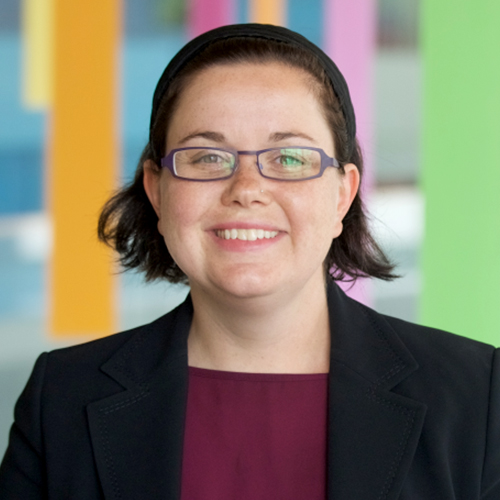
View Details / Enroll
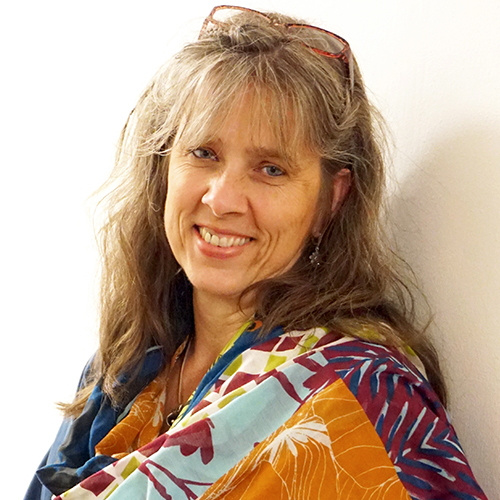
Building Strong Children: The Power of Buffering Protection Through Responsive Parenting and Caring Communities

Marianne is a mother of four grown-up, home-birthed and breastfed daughters and granny of five beautiful home-birthed, breastfed grandchildren. After a personal experience with breastfeeding practices in a hospital, she became a volunteer for the Dutch breastfeeding association in 1994 and for many years, she led big groups for pregnant and breastfeeding mothers in her home town.
She became an IBCLC in 2008 and launched her private practice, from which she does consultations, book translations (such as James McKenna’s book ‘Sleeping With Your Baby’ and recently ‘Safe Infant Sleep’, and Jill and Nils Bergman’s book ‘Hold Your Prem’), blogging and writing on youth healthcare, advocating for policies that generously take neurophysiological and sociocultural convictions into account. Translating and avid reading widened Marianne’s insights and field of interest, leading her her to Cultural Anthropology & Development Sociology at the University of Amsterdam and subsequently a master’s degree in Medical Anthropology & Sociology.
Combining several fields, she co-founded the initiative ACE Aware NL early 2020, chiming in with similar movements in Scotland and California, US. The aim is to increase awareness around Adverse Childhood Experiences and their impact on adult health and wellbeing. Now that science abundantly shows the importance of sensitive and responsive parenting for overall health and wellbeing, all sectors in society deserve to know what a world of difference they can make in a child's life if they succeed in incorporating trauma-sensitive approaches . Marianne expects to remain strongly tied to this field for the rest of her life.
There is a growing awareness about the impact of Adverse Childhood Events or ACEs and the toxic stress they can create during a child’s formative years. So far much of the research and conversation has focused on identifying ACEs and the negative life-long consequences they can have. How can we reframe the conversation to shift from focusing on reacting to negative outcomes, to creating the caring connections that promote healthy brain development and stress regulation? To feel healthy, people of all ages look for a meaningful existence with loving and caring relationships. In the Salutogenic Model of Health this is called the Sense of Coherence (SoC). When the SoC is under strain, this can cause pain and trauma that both parent and child express in behaviours that are difficult to handle for themselves and others. As innately and intensely social beings, humans actively try to connect to others to build positive, contextualised relationships that support health and wellbeing and create social resources. Therefore, secure childhoods and nurturing social environments are likely to increase lifelong resilience. Looking at health from a salutogenic perspective can help us understand that health and wellbeing cannot simply be depoliticised and decontextualized as an individual responsibility. ACEs are not always preventable, but we have the power to help both parents and professionals create the positive childhood experiences (PCEs) that buffer the negative ones and create resilience.
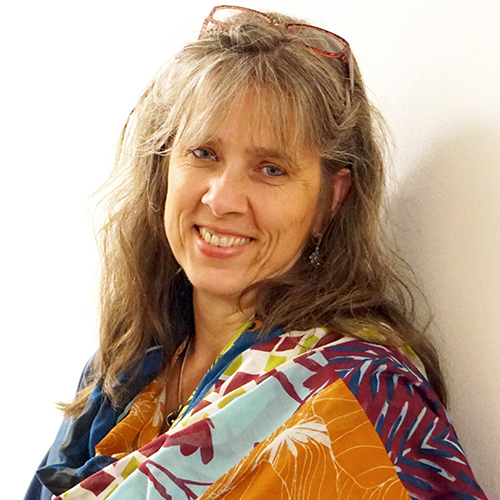
View Details / Enroll
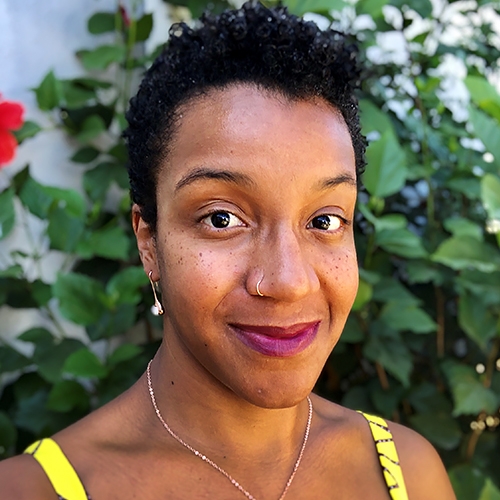

Leah De Shay studied Psychology and Speech Language Pathology in undergrad before embarking on a series of international research projects with that launched her journey to CLEC and IBCLC completion. Has worked both in patient and out patient, runs community support groups and is the current president of LACTWORLD and chief operating officer of LacBoMa. She is saving to do her bridge doctoral studies in physiology of lactation.
Breastfeeding parents who are navigating autoimmune disorders of inflammation such as lupus, and rheumatoid arthritis face unique challenges. This presentation will look at the lived experiences, limited research, and express challenges of these parents including the most common and debilitating symptoms for the prenatal and post partum periods, and ways these conditions can affect mammary gland development or interfere with lactogenesis stages. Also covered will be how managing the symptoms of these disorders affects the stress of recovery and breastfeeding or pumping goals, what methods of support can be offered and areas for future clinical improvement and advocacy.


Sejal is an International Board Certified Lactation Consultant (IBCLC) in private practice and an infant massage educator in Hillsboro, Oregon, USA. She combines her professional expertise with her personal instincts as a mother and a supportive team member.
She holds a Bachelors in Microbiology and Clinical Laboratory Science.
She also brings with her the following comprehensive toolkit: Certified Educator of Infant Massage, Formerly Certified in skin-to-skin care for full term infants from the United States Institute of Kangaroo Care Certified Provider of Innate Postpartum Care.
She has presented nationally and internationally for GOLD lactation, ILCA, community colleges, local lactation organizations.
As a lactation consultant, she believes that every individual needs to be educated about breast health, optimal infant feeding and how breastfeeding support is a basic human right and can impact world health globally.
She strives to help each family by continuing to learn all she can about breast health, breastfeeding ecology, breastfeeding movement and parent-infant connection using the neurobiological and infant mental health lens.
When she’s not with her clients, you can find her at home in Hillsboro, Oregon, USA, listening to bollywood music, hanging out with friends and spending time with her family.
Topic: Calm & Regulated: Rethinking Our Approach to Latch and Positioning - [View Abstract]
Topic: Teaching Infant Facial Massage to Parents to Support a Functional Latch - [View Abstract]
Every interaction in lactation care with clients must set the foundation for creating an oxytocic environment. Improving client self-efficacy must be a priority for every lactation professional who works with the dyad. This presentation will dive deeper into the various factors that include not just latching and positioning but also brings attention to regulating the nervous system of the parent and baby. The presence of a lactation support professional needs to invite a neurophysiological encounter of safety in the parent and infant. This allows them to feel relaxed, unfurled, and present in the process of feeding and beyond. We will review clinical case studies, videos, photos and curious compassion for better client outcomes. Lactation professionals will be able to incorporate the ideas from this presentation into their clinical practice. They will be able to encourage client self-reliance that lasts beyond the consultation. This presentation can be used as a guide for providing a neurophysiologically inclusive feeding plan and bridging the gap between initiation and duration of breastfeeding.
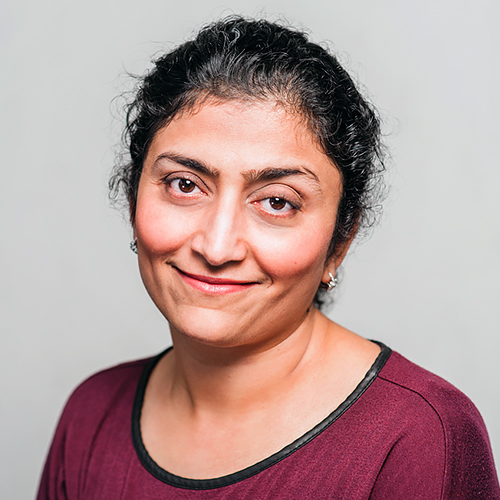
View Details / Enroll



